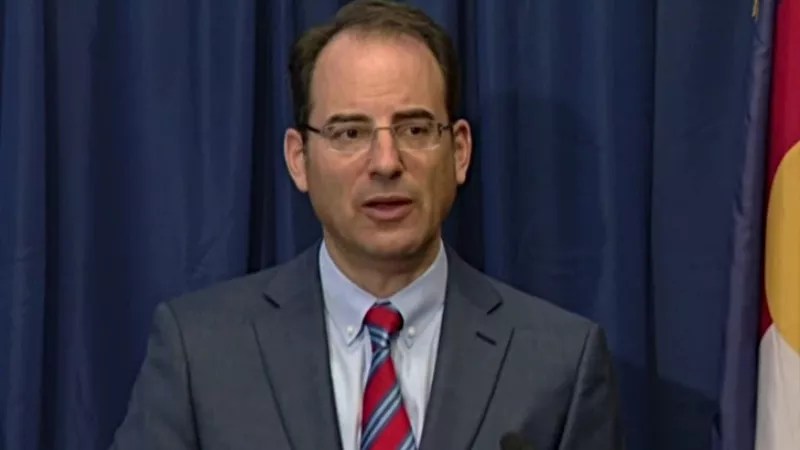

Audio By Carbonatix
The office of Colorado Attorney General Phil Weiser has found that the Aurora Police Department has a pattern and practice of racially biased policing, as well as unsound training, inadequate record-keeping and a culture that leads to the use of excessive force.
During a September 15 press conference previewing a report about the APD and Aurora Fire Rescue, whose use of the powerful drug ketamine was also found to regularly violate the law, Weiser said that his team will work with the City of Aurora to come up with a consent decree to address these issues. If an agreement related to such a decree isn’t reached within the next sixty days, he added, “We’re prepared to seek a court-ordered solution to this problem.”
Two weeks ago today, on September 1, Weiser took the Aurora Police Department to task on a specific case: the death of 23-year-old Elijah McClain after a violent encounter with members of the Aurora Police Department on August 24, 2019. He revealed that a grand jury had issued a 32-count indictment against five individuals: Aurora Police officers Randy Roedema and Nathan Woodyard, former Aurora Police Officer Jason Rosenblatt (who was fired after he texted “Haha” in regard to a re-enactment photo of the McClain incident), and Aurora Fire Rescue paramedics Jeremy Cooper and Peter Cichuniec, who injected McClain with ketamine without his consent. The medication appears to have triggered a health crisis from which he never recovered.
During that announcement, Weiser made a point of mentioning that a more general civil-rights inquiry into Aurora’s police and fire departments was ongoing. Now that probe, empowered by Senate Bill 20-217, a police reform measure that went into effect last year, has been completed. After analyzing more than a million records, reading almost 3,000 reports and associated documents dating back over a five-year period, and viewing body-worn camera footage from multiple incidents, Weiser’s crew determined that department personnel have regularly exhibited a bias toward suspects of color and have used excessive force on such individuals on a disproportionate basis. According to the report, unnecessary force was often used against people who weren’t given an adequate amount of time to comply with orders or were suffering from mental health distress but didn’t present an imminent threat of harm to themselves or others; de-escalation didn’t happen nearly often enough.
Ineffective training, a poor process of reviewing excessive-force cases, record-keeping that fell short, and an overall culture that allowed improper behavior to continue unabated compounded the problems.
Weiser praised Aurora officials for cooperating throughout the investigation, and expressed his hope that they will continue to work with his office during the consent-decree process, which will be lengthy. At this point, it’s not clear where the decree will be filed, what court will be tasked with seeing that the pact is enforced, or what the assorted departments will need to do to get their houses in order – though Weiser stressed that an independent monitor should be part of the fix. What’s certain, however, is that “it is going to take time,” he maintained. “We have to develop this consent decree. Then we have to implement it, and then we have to oversee it,” probably “for five years or more.”
In other words, the work needed to eliminate the police department’s flaws and restore trust among members of the community is just beginning. Click to read the Colorado Attorney General’s Office Aurora Police Department and Aurora Fire Rescue investigation report.